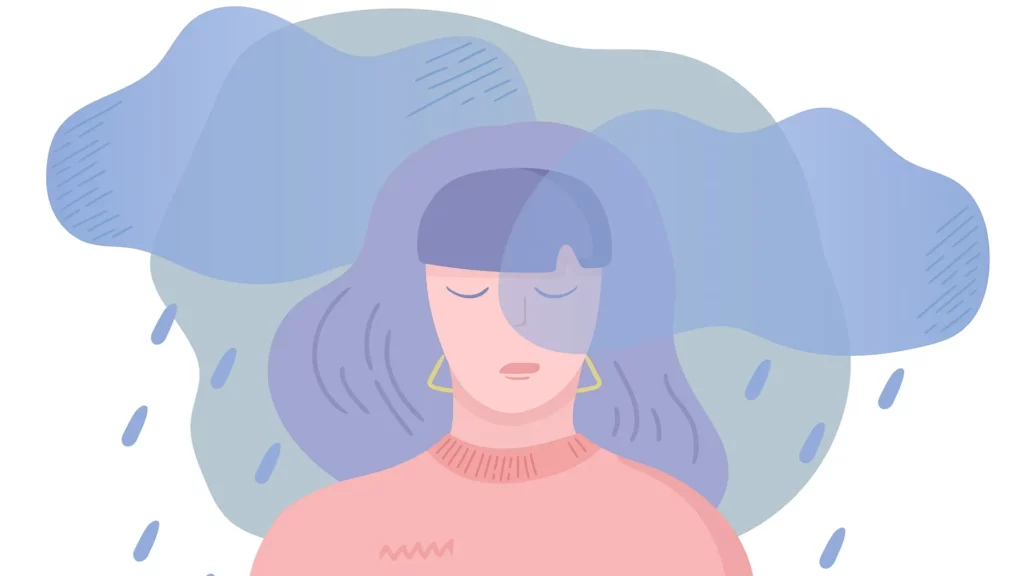Did you know that ADHD and depression are often linked? Around 50% of people who have ADHD also experience depression at some point in their lives. While the two conditions are linked, it’s important to note that they are separate and distinct disorders. This can make treatment a bit tricky, but there are ways to manage both conditions. In this blog post, we will discuss the link between ADHD and depression, as well as some tips for managing them both.
Contents
What Is Depression?
Depression is a mental disorder that is characterized by persistent feelings of sadness, hopelessness, and worthlessness. People with depression often have trouble sleeping, concentrating, and eating. They may also experience physical symptoms such as fatigue, aches and pains, and headaches. Depression can range from mild to severe, and it can be short-lived or long-lasting. It can also be a reaction to a life event, such as the death of a loved one. Depression is one of the most common mental disorders worldwide.
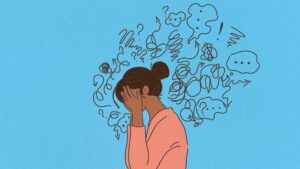
What Is ADHD?
ADHD is a neurodevelopmental disorder that is characterized by problems with focus, impulsivity, and hyperactivity. People with ADHD often have trouble paying attention or completing tasks. They may also be impulsive or act without thinking things through. They may also be easily distracted or forgetful. ADHD can range from mild to severe, and it can be short-lived or long-lasting. It is often first diagnosed in childhood, but it can carry into adulthood. While ADHD can be challenging, it is important to remember that people with ADHD are often very creative and intelligent.
The Link Between ADHD and Depression
ADHD and depression are distinctly opposite when it comes to the nature of the disorder as well as their symptoms. However, there are certain similarities, as well as a set of key differences in both the disorders.
Similarities
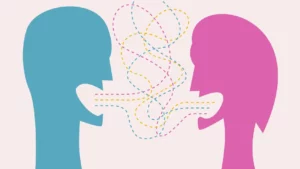
There are a few reasons why ADHD and depression may be linked.
- ADHD can make it difficult to accomplish goals or meet expectations. This can lead to feelings of failure, which can trigger depression.
- One of the most popular theories states that ADHD symptoms can lead to depression. For example, people with ADHD may feel overwhelmed by their chaotic thoughts and behaviors.
- People with ADHD may have trouble sleeping, which can also lead to depression.
- One theory is that people with ADHD are more likely to experience stressful life events. This may include academic difficulties, job problems, and relationship difficulties, which may result in depression.
- Depression is three times more prevalent in adults with ADHD than those without it.
- They may also experience physical symptoms such as fatigue, increase in heart rate, sweatiness, stomach problems, aches and pains, and migraines.
- The impulsivity that is characteristic of ADHD can sometimes result in risky behaviors, such as substance abuse or unprotected sex. These behaviors can also lead to problems that contribute to depression, such as financial difficulties or relationship problems.
- Finally, people with ADHD may feel isolated or alone because they often have difficulty making and keeping friends. This isolation can also contribute to depression.
Difference
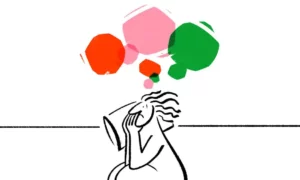
ADHD and depression are two distinct disorders, but there are some similarities between them. Both disorders can be short-lived or long-lasting, and they can range from mild to severe. However, there are some key differences between the two conditions.
- Depression characterizes by persistent feelings of sadness, hopelessness, and worthlessness. ADHD, on the other hand, characterizes by problems with focus, impulsivity, and hyperactivity.
- Individuals with ADHD have a hard time making decisions and starting tasks, meanwhile people suffering from depression may not initiate any activity at all.
- Someone with ADHD may have trouble falling asleep due to a hyperactive mind, while a person with depression may feel tired but unable to sleep due to negative thoughts and insomnia.
- Depressed individuals have chronic sadness which can last over a long period of time. While those with ADHD may experience severe mood fluctuations.
- People with ADHD may also have a hard time completing tasks, while those with depression may not see the point in even starting them.
- Depressed people may find it difficult to even have basic motivation for everyday tasks, while an ADHD brain may have highly unregulated levels of motivation, causing them to be impulsive and disorganized.
- ADHD is often first diagnosed in childhood, while depression can occur at any age.
- Depression is more common in women than men, but ADHD affects both sexes equally.
Treatment Options
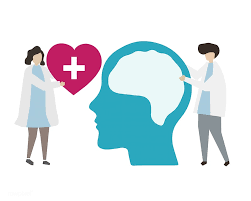
There are a few different treatment options available for people with ADHD and depression.
Medication
Medication can be an effective treatment for both ADHD and depression. Stimulants, such as Adderall or Ritalin, are often prescribed to treat ADHD. These medications can also help to improve mood, focus, and concentration, and reduce impulsivity.
Antidepressants, such as Prozac or Zoloft treat depression. These medications can also help to improve focus and concentration. Antidepressants may also be prescribed to help with the symptoms of depression.
Therapy
Another option is therapy. Cognitive-behavioral therapy (CBT) is a type of therapy that can help people with ADHD learn how to manage their thoughts and behaviors. CBT can also be effective in treating depression by helping people identify and change negative thinking patterns. Psychotherapy, or talk therapy, can be an effective treatment for both ADHD and depression. Support groups can also provide social support and information for people with ADHD and their loved ones. These groups can help manage both disorders.
Self Help Tips
There are a few things that you can do to help yourself if you have ADHD and depression.
- Get organized: This can be as simple as making a to-do list or keeping a planner. Having a set routine can also help.
- Set goals: Setting small, attainable goals can help you feel more successful and motivated.
- Maintain a journal: Writing down your thoughts and feelings can help you to identify patterns and triggers, and can also be therapeutic.
- Exercise: Exercise has been shown to improve mood and concentration. It can also help to reduce impulsivity. It also releases endorphins, which have mood-boosting effects.
- Eat healthily: Eating nutritious foods helps the brain to function properly.
- Get enough sleep: Sleep is important for overall health and well-being. People with ADHD often have trouble sleeping, so it is important to get enough rest.
- Avoid alcohol and drugs: Alcohol and drugs can make ADHD and depression worse. If you are struggling with addiction, seek help from a professional.
- Talk to someone: Talking to a friend, family member, therapist, or psychiatrist can help you to manage your symptoms and feel better, and have a sense of understanding and support.
If you think you may have ADHD or depression, it is important to talk to a doctor or mental health professional. These disorders can have an effective treatment with medication, therapy, and self-help strategies. With treatment, people with ADHD and depression can live happy and successful lives.
Conclusion
In conclusion, ADHD and depression are linked, but they are two separate disorders. There are a few reasons why these conditions may be linked, such as the fact that ADHD can lead to feelings of failure. However, there are some key differences between the two disorders. If you or someone you know is struggling with ADHD and depression, there are ways to manage both conditions.
For more information, please contact MantraCare. ADHD is a neurodevelopmental disorder characterized by difficulty in paying attention, hyperactivity, and impulsivity. If you have any queries regarding Online ADHD Counseling experienced therapists at MantraCare can help: Book a trial ADHD therapy session
